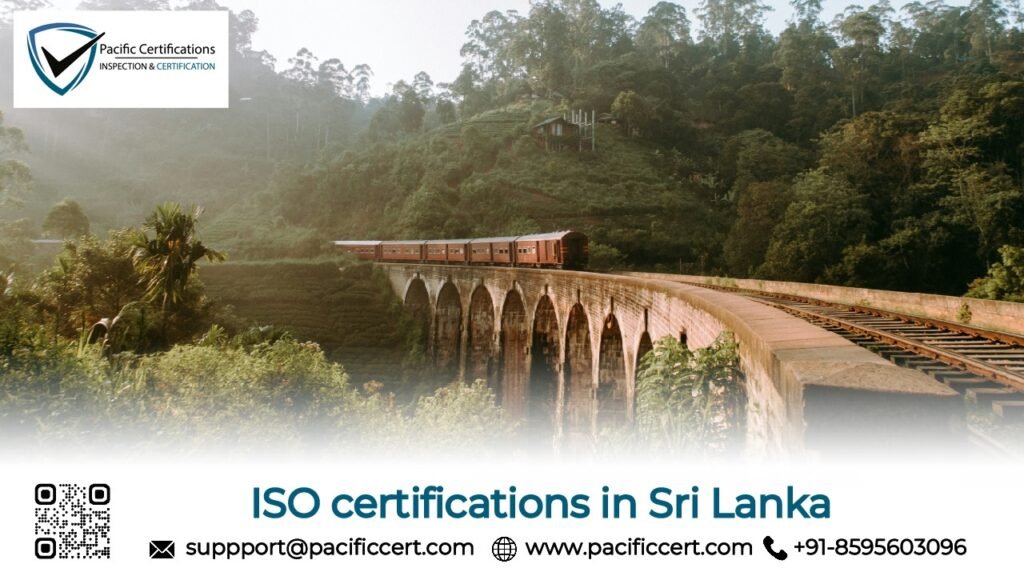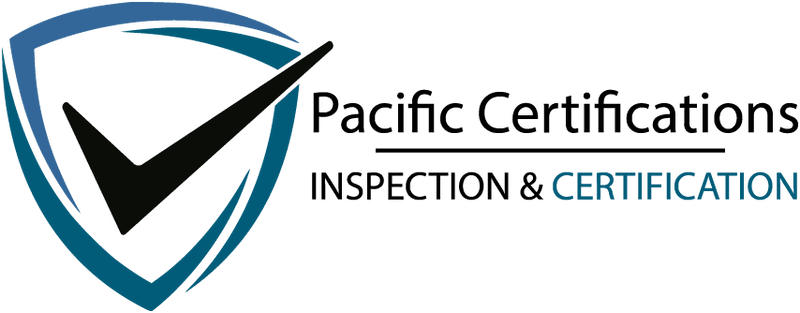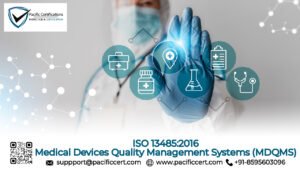
ISO Certifications in Sri Lanka and How Pacific Certifications can help
Sri Lanka, a nation with a rapidly growing economy, has embraced ISO standards to ensure the quality, safety, and efficiency of its products and services. As globalization continues to influence the Sri Lankan market, adoption of international standards has become important for businesses that wish to compete on a global scale. ISO standards, recognized worldwide, provide a framework for businesses to improve their processes, reduce risks and improve customer satisfaction. In Sri Lanka, the adoption of these standards has seen a significant rise.
The Sri Lankan government and private sectors have recognized the importance of ISO standards in promoting international trade and ensuring consumer safety. From small and medium enterprises (SMEs) to large corporations, ISO certifications have become a benchmark for quality assurance in the country. As a result, there has been a concerted effort to promote ISO standards across industries such as manufacturing, healthcare, food and beverage, information technology and more.
Ready to achieve ISO certification in Sri Lanka? Reach out to us today at support@pacificcert.com to start your certification journey with Pacific Certifications.
Popular ISO Standards in Sri Lanka
Several ISO standards have gained popularity in Sri Lanka due to their relevance to key industries and their contribution to enhancing product quality. Here are some of the widely adopted ISO standards in the country:
- ISO 9001: Quality Management System (QMS): ISO 9001 is one of the most recognized and implemented standards in Sri Lanka. It outlines the criteria for a quality management system, helping organizations ensure that they meet customer and regulatory requirements consistently.
- ISO 14001: Environmental Management System (EMS): ISO 14001 helps organizations manage their environmental responsibilities in a systematic manner, contributing to sustainable development.
- ISO 45001: Occupational Health and Safety Management System (OHSMS): ISO 45001 provides a framework for managing occupational health and safety risks, helping organizations create safer workplaces. The standard is widely adopted in industries with high-risk environments such as construction, manufacturing and mining etc.
- ISO 27001: Information Security Management System (ISMS): ISO 27001 outlines the requirements for establishing, implementing, maintaining, and continually improving an information security management system.
- ISO 22000: Food Safety Management System (FSMS): ISO 22000 sets out the criteria for a food safety management system, ensuring that food products are safe for consumption. This standard is widely implemented by food manufacturers and suppliers in Sri Lanka.
- ISO 50001: Energy Management System (EnMS): As energy efficiency becomes a critical concern, ISO 50001 provides a framework for organizations to manage and improve their energy performance, leading to cost savings and reduced environmental impact.
Click here to find out more applicable standards to your industry
Looking for expert guidance on ISO certification in Sri Lanka? Contact us at support@pacificcert.com to learn how we can assist your business in achieving international standards.
Market News
In this year, the ISO certification landscape in Sri Lanka is marked by significant growth, driven by the increasing demand for quality assurance and sustainability. Recent research indicates a surge in the adoption of ISO 14001 and ISO 50001, reflecting the growing emphasis on environmental responsibility and energy efficiency. The Sri Lankan government has also introduced incentives for businesses that achieve ISO certifications, particularly in the areas of environmental management and energy conservation.
Additionally, the integration of digital technologies in certification processes has made it easier for organizations to comply with ISO standards, further fueling the adoption rate. The trend towards sustainable and energy-efficient practices is expected to continue with more organizations seeking ISO certifications to stay competitive in the global market.
Make ISO certification a reality for your business in Sri Lanka. Email us at support@pacificcert.com or call +91-8595603096 for professional audit and certification services.
At Pacific Certifications, we specialize in providing audit and certification services for a wide range of ISO standards. Our role is to assess whether your organization meets the requirements of the specific ISO standard you are aiming to achieve. We do not offer consultancy; our certification process remains impartial and credible.
Elevate your business with ISO certification in Sri Lanka. Contact Pacific Certifications at support@pacificcert.com or +91-8595603096 to get started today.
Requirements of ISO Certifications in Sri Lanka
Each ISO standard has its own set of requirements that organizations must meet to achieve certification. Here is an overview of the key requirements for some of the popular ISO standards in Sri Lanka:
ISO 9001:2015 – Quality Management System
- Context of the Organization: Understanding internal and external issues, identifying interested parties, and determining the scope of the Quality Management System (QMS).
- Leadership: Top management commitment, establishing quality policies and objectives, defining roles, responsibilities, and authorities.
- Planning: Addressing risks and opportunities, quality objectives and planning to achieve them, planning of changes.
- Support: Providing resources, competence, awareness, communication, and control of documented information.
- Operation: Planning and control of operational processes, determining requirements for products and services, design and development, external provision of goods and services, production and service provision, release of products and services, and control of nonconforming outputs.
- Performance Evaluation: Monitoring, measurement, analysis, and evaluation of QMS performance, internal audits, and management reviews.
- Improvement: Addressing nonconformities, corrective actions, continual improvement of the QMS.
ISO 14001:2015 – Environmental Management System
- Context of the Organization: Understanding external and internal environmental conditions, interested parties, and defining the scope of the Environmental Management System (EMS).
- Leadership: Demonstrating leadership and commitment to environmental management, establishing environmental policies and objectives.
- Planning: Identifying environmental aspects, evaluating significant impacts, addressing risks and opportunities, and planning actions to achieve environmental objectives.
- Support: Provision of resources, ensuring competence, awareness, communication, and maintaining documented information.
- Operation: Planning and controlling operations that could have significant environmental impacts, emergency preparedness, and response.
- Performance Evaluation: Monitoring, measuring, analyzing, and evaluating environmental performance, internal audits, and management reviews.
- Improvement: Managing nonconformities, taking corrective actions, and continually improving the EMS.
ISO 45001:2018 – Occupational Health and Safety Management System
- Context of the Organization: Understanding the context regarding occupational health and safety, identifying interested parties, and determining the scope of the Occupational Health and Safety (OH&S) Management System.
- Leadership: Leadership commitment, establishment of an OH&S policy, roles, responsibilities, and authorities.
- Planning: Identifying hazards, assessing risks and opportunities, determining OH&S objectives, and planning actions to achieve them.
- Support: Provision of resources, ensuring competence, awareness, communication, and maintaining documented information.
- Operation: Planning and controlling operational processes, managing risks, implementing control measures, and emergency preparedness and response.
- Performance Evaluation: Monitoring and measuring OH&S performance, internal audits, and management reviews.
- Improvement: Managing nonconformities, taking corrective actions, and continually improving the OH&S Management System.
Ensure your business meets global standards. For ISO certification in Sri Lanka, reach out to us at support@pacificcert.com or call +91-8595603096.
Benefits of ISO Certifications in Sri Lanka
Achieving ISO certification offers numerous advantages for organizations, ensuring that they meet international benchmarks. Below are benefits associated with each of the key ISO standards:
- ISO certifications are globally recognized standards that enhance the credibility and reputation of organizations.
- ISO Certifications allow organizations to differentiate themselves from competitors in both local and international markets.
- Implementing ISO standards encourages organizations to streamline processes, reduce waste, and eliminate inefficiencies.
- Adherence to ISO standards ensures consistent quality in products and services, minimizing errors and reducing the cost of rework.
- ISO certifications help organizations in Sri Lanka stay compliant with national and international regulations.
- Standards like ISO 14001 and ISO 45001 emphasize the identification and management of environmental and occupational health and safety risks, promoting a proactive approach to compliance.
- ISO 9001, in particular, places a strong emphasis on understanding and meeting customer requirements, leading to improved customer satisfaction and loyalty.
- ISO certifications require organizations to identify and manage risks systematically.
- Standards like ISO 22000 (Food Safety) and ISO 45001 (Occupational Health and Safety) help organizations prepare for and effectively respond to emergencies, protecting both employees and consumers.
- ISO 14001 encourages the adoption of sustainable practices.
- ISO certifications demonstrate an organization’s commitment to corporate social responsibility.
- ISO 50001 focuses on energy management, enabling organizations to reduce energy consumption.
- ISO certifications can open doors to new markets, particularly where certifications are a prerequisite for doing business or bidding on contracts.
In summary, achieving ISO certification in these key areas offers organizations in Sri Lanka a range of benefits. These certifications are not just a mark of compliance but a strategic tool for driving business success and sustainability.
Need ISO certification in Sri Lanka? Contact our team at support@pacificcert.com or +91-8595603096 for a seamless and efficient certification process.
Who Needs These ISO Certifications in Sri Lanka?
ISO certifications are beneficial for organizations of all sizes and across various industries in Sri Lanka. Here are some examples of who need these certifications:
- Manufacturers: ISO 9001, ISO 14001, and ISO 45001 certifications are essential for manufacturers to ensure product quality, environmental compliance, and worker safety.
- Service Providers: Companies in the service sector, such as IT, finance, and healthcare, can benefit from ISO 9001 and ISO 27001 certifications to enhance service quality and protect sensitive information.
- Food and Beverage Industry: ISO 22000 certification is crucial for food manufacturers, processors, and suppliers to ensure food safety and compliance with international standards.
- Construction Companies: ISO 45001 and ISO 9001 certifications are important for construction companies to manage occupational health and safety risks and ensure the quality of their projects.
- Energy and Utilities: ISO 50001 certification is valuable for energy-intensive industries and utilities to improve energy efficiency and reduce environmental impact.
- Public Sector Organizations: Government agencies and public institutions can benefit from ISO 9001 and ISO 14001 certifications to improve service delivery and demonstrate environmental responsibility.
Certification Process in Sri Lanka
The process of achieving ISO certification in Sri Lanka involves several key steps. Here is an overview of the certification process:
- Preparation: Before beginning the certification process, organizations should familiarize themselves with the relevant ISO standard and its requirements.
- Internal Audit: Conducting an internal audit is a critical step in the certification process. It involves assessing the organization’s existing management systems and processes to identify any gaps or areas for improvement.
- Selecting a Certification Body: Organizations must choose a certification body, such as us, Pacific Certifications, to conduct the external audit and issue the certification.
- Stage 1 Audit (Document Review): The certification process begins with a stage 1 audit, where the certification body reviews the organization’s documentation to ensure it meets the requirements of the ISO standard.
- Stage 2 Audit (On-site Assessment): During the stage 2 audit, the certification body conducts an on-site assessment to verify the implementation of the management system.
- Certification Decision: Based on the results of the stage 2 audit, the certification body will decide whether to grant certification. If there are non-conformities, the organization may need to address them before certification is issued.
- Surveillance Audits: After certification is granted, the organization must undergo regular surveillance audits to ensure continued compliance with the ISO standard.
- Recertification: ISO certifications are valid for a specific period of three years. Organizations must undergo a recertification audit at the end of this period to maintain their certification.
Are you ready to elevate your organization to the next level with ISO certification? At Pacific Certifications, we are here to guide you through the audit and certification process, ensuring that your management systems meet international standards.
Pacific Certifications is accredited by ABIS, in case you need support with ISO certification for your business in Sri Lanka, please contact us at support@pacificcert.com or +91-8595603096.
Our team is here to answer your questions and provide the support you need to achieve ISO certification.
FAQs: ISO Certifications in Sri Lanka
ISO certification is a formal recognition that an organization’s management systems, processes, or products meet the requirements of an ISO standard. It is issued by a certification body after a thorough audit and assessment.
The time required to achieve ISO certification depends on various factors, including the size of the organization, the complexity of its processes, and the specific ISO standard. On average, it can take several months to complete the certification process.
Yes, any organization in Sri Lanka, regardless of size or industry, can apply for ISO certification. The key is to ensure that the organization meets the requirements of the relevant ISO standard.
The cost of ISO certification varies depending on the certification body, the size of the organization, and the scope of the certification. Costs typically include audit fees, documentation review fees, and surveillance audit fees.
Surveillance audits are typically conducted annually after the initial certification. These audits are designed to ensure that the organization continues to comply with the ISO standard.
If an organization fails the ISO audit, the certification body will identify the non-conformities that need to be addressed. The organization will have the opportunity to correct these issues and undergo a follow-up audit to achieve certification.
Yes, organizations can switch certification bodies after achieving ISO certification, but it is important to ensure that the new certification body is accredited and recognized.
ISO certification is typically valid for three years. Organizations must undergo a recertification audit at the end of this period to maintain their certification.
Read More at: Blogs by Pacific Certifications








